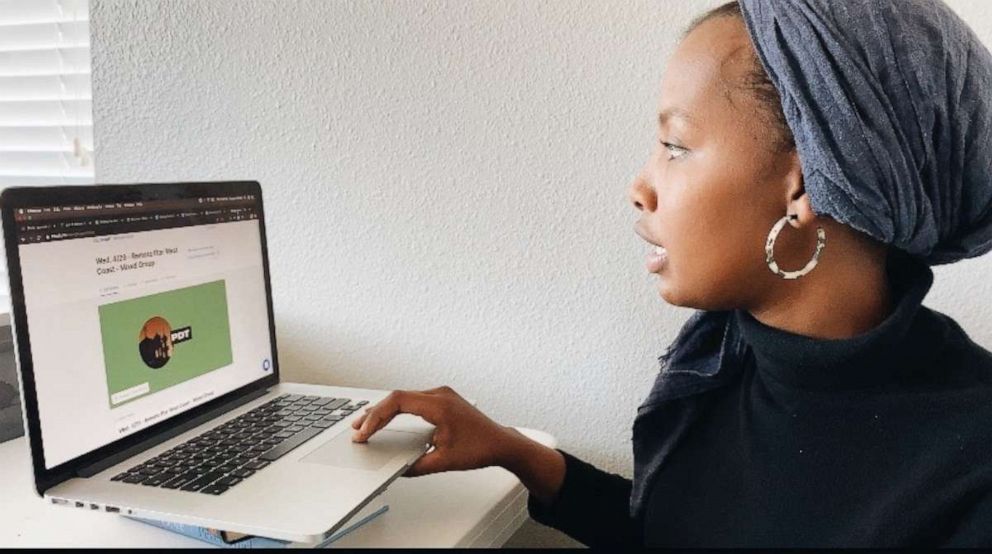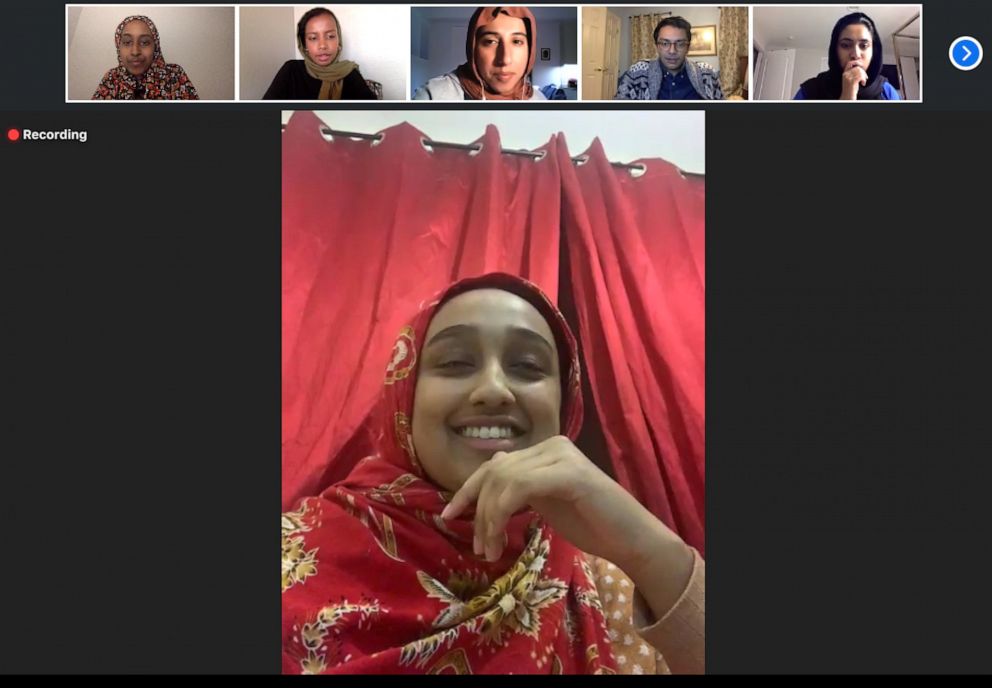With hardship comes ease: Muslims go digital to celebrate Ramadan in quarantine
Remote Iftar lets Muslims break Ramadan fasts together during quarantine.
A little over a week ago, Muslims around the world rang in the start of Ramadan, the holy month where Muslims fast from food and water, sunrise to sunset.
This year's circumstances are notably different: with stay-at-home orders enacted across the United States and many other countries taking similar, if not more drastic, precautions to contain COVID-19, there are many Muslims who will spend this month alone while social distancing or in quarantine.
Muslims in caregiving facilities that are no longer allowing visitors, front line workers who are separated from their loved ones and recent converts who may not have a strong support system to lean on are among the many who may face great difficulty during this month.
Beneath all this, there is a shared underlying fear that community will be lost.
However, through the use of digital space, community can take on many forms. Ramadan may not have to be so lonely after all.
Remote Iftar
Remote Iftar is an online initiative created by computer scientist Fadumo Osman that allows Muslims from all over the world to break fast together, virtually.
"Usually, we'd be spending this time in masjids and restaurants, and at family and friends' homes, so I really wanted to put together this idea of breaking fast with those who are near you, but not next to you," Osman told "Good Morning America."

"After a conversation with a friend who had recently celebrated Easter, and having observed my Jewish friends have virtual and Zoom seders, I really wanted to test out the idea of Muslims breaking fast together online," she said.
Through an easy-to-navigate site, Muslims across the globe can break their fast and share both meals and conversations alike with strangers who will likely become friends by the click of a button.
An inside look
During a remote Iftar at the start of Ramadan, there were faces from Toronto, Maryland and London.
The conversation began with summaries of people's meals and discussion prompts led by the hosts. Soon enough, people were sharing their Ramadan traditions with one another and their personal goals for the month. After an hour of stories told, the iftar ended in laughter and a feeling of togetherness.

"There was a lot of trepidation for me going into this Ramadan, being so physically isolated but socially isolated as well," Shireen Ahmed said during the call. "But I've been really surprised with this initiative, Alhamdulillah. It's really great because I never would've met any of you necessarily."
What community can look like
With visits on her site from more than 40 countries and sign-ups from Singapore to Germany as well as each time zone in the United States, Osman has seen similar results at the other iftars she has organized this month.
"Friends have already been made and people have exchanged social media info so that they can even meet up once this is all over," Osman explained.
Osman hopes to further this initiative by bringing Remote Iftar to caregiving facilities. She has began working with Minneapolis-based facilities to organize virtual iftars for the families and loved ones of those who are under quarantine with little to no visitation allowed.
"It's been awesome working with families to ensure they know how to set up Zoom calls and other basics of how to use a video conference tool because, for many, this is the first time that they're doing it," Osman said. "Hopefully, in the next couple of weeks, we are able to figure out a way to mass produce this access nationwide."
While Remote Iftar was born under uneasy circumstances, there are many lessons to be learned about how the digital space can help further build community even after the quarantine ends.
"What I'm hoping is not only people coming together in person once it's safe to do so," Osman said, "but to also carry on this idea that we can always have virtual events in the future, so that those who can't necessarily make it in person always have a space to access and meet with other people."




